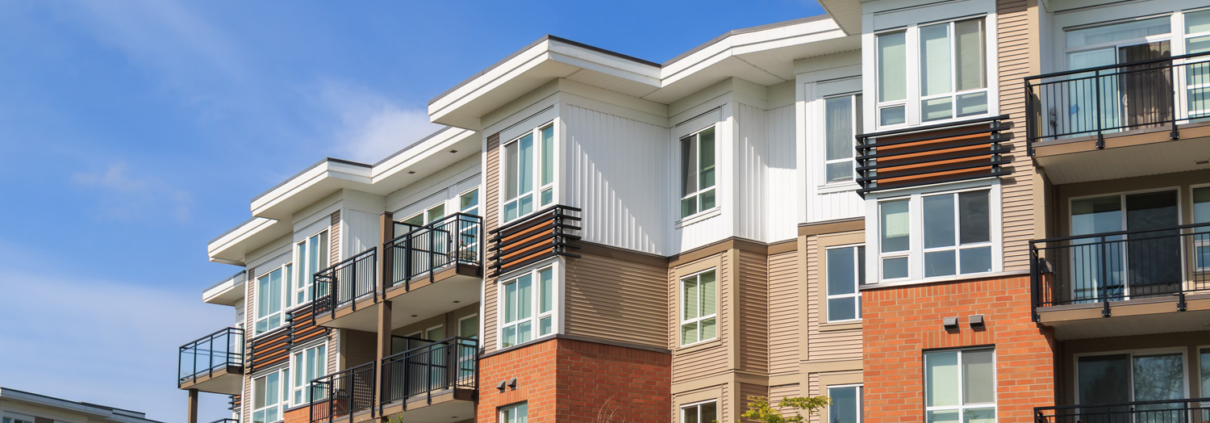5 Reasons why Doctors Should Invest in Apartment Syndications
As long as I’ve been a doctor, I’ve been investing my earned income into assets that I thought would serve my long term financial benefit. Like me, you’ve probably been taught the stock market is where smart investors put their money. And while there is definite benefit to investing in the market, I’ve learned that most of the wealthy in this country focus their capital towards real estate as a way to grow their wealth and establish stable cash flow.
I cringed when someone first told me that. When I think of real estate investing, the first thing that comes to mind is “flipping” houses—buy a house in distress, add some degree of improvements quickly, and sell it to another buyer. While that is one aspect of real estate, history has shown flipping to be cyclical and full of risk.
The area of real estate, rather, that creates stable cash flow and growth of capital is multifamily investing. Multifamily housing can be something as small as a duplex or it can be as big as a several hundred unit apartment complex. There are certainly those investors who do well in the smaller multifamily space, but those are typically more hands-on investments. For the sake of this article, we’ll be talking about the benefits of investing in large apartment syndications–like the ones we offer here at New Sight Capital.
Here’s 5 Reasons why we think doctors should be investing in apartment syndications:
1. CAPITAL PRESERVATION
I used to think the number one goal of investing was to make money. As the years go by and my personal wealth increases, I found preserving my capital is of great importance. Each trip around the sun is one less year of income potential. I’m 43 and I don’t have as many income earning years in the tank as I did when I was 33. It’s just a fact. While I’ve increased my wealth through the stock market, it comes with significant risks. No one can deny the market returns over the last 10, 20, or 30 years. But there have been considerable and violent downside corrections along the way. Volatility can be sickening when you have significant money invested in the market.
However, one asset class that has not suffered violent corrections over the last half century is multifamily housing—specifically apartments. While 2008 saw a housing market crash, the rental housing market did not. The data shows that, while home prices fell like a rock, the value of apartments held their ground. Why? One word: rents! Apartments are essentially valued based on the profit they generate from rent, and rent prices are determined by the supply and demand of the marketplace. In a housing recession there is oversupply of homes and undersupply of qualified and willing buyers. However, in any recession, people still need a place to live, and the demand for rental housing does not go down. Actually, the long term trend has been increased demand for rental housing. Increasingly, more of the population seeks to rent rather than own.
That’s especially good for apartment values, since supply is very limited. Historically, most areas of the country have not built rental housing at a rate fast enough to keep up with demand. Given the costs of construction, this will not be a trend that is broken anytime soon. The result is limited supply and strong, increasing rental demand. Rents rise in response and apartments grow in value. As a result, investors in apartments are given a stable place to put their money no matter the greater economic cycle. For doctors who are concerned about preserving their wealth for their families and the future, apartment syndications provide a proven opportunity.
2. CONSISTENT CASH FLOW
As with many investors, reading “Rich Dad, Poor Dad” by Robert Kiyosaki forever altered how I define and seek assets. The premise of the argument is that for something to be considered an asset it must generate a net positive cash flow. Anything else you buy that does not give you a net positive cash flow is a liability.
This is important because cash flow gives financial freedom. For many doctors, like myself, seeing patients is very enjoyable. Yet, the burdens of insurances, staffing, regulations, etc., dilute professional satisfaction over time. The more cash flowing assets you acquire, the less dependent you and your family are on your work–allowing you more flexibility in how you choose to invest your time and expertise.
Apartment syndications offer doctors an excellent opportunity to invest in stable cash flow returns. When you invest in an apartment syndication with New Sight Capital, you are given an equity position as a Limited Partner in the apartment property. That entitles you to a pro rata share in the profits that property generates. Syndications typically pay out cash distributions quarterly to their investors. Apartment syndications can have hold periods of anywhere from 2 to 7 years, but the industry average hovers around 5 years. That means the investor has 5 years worth of stable, consistent cash flow payouts from their investment. This gets even better when you consider the next two advantages: it’s passive and holds significant tax benefits!
3. TRULY PASSIVE INVESTMENT
Part of what makes apartment syndications so attractive is that they are passive investments. People throw that term around a lot. Most often they apply it to situations that still require a certain level of involvement, time, or effort. But, New Sight Capital apartment syndications are entirely worry free for our investors. We find the properties, secure funding, close on the property, hire professional managers to run the property, source accounting and legal work from licensed professionals, and return profits to our investors in the form of quarterly payments. It’s really that simple for our investors.
You don’t have to deal with leaky toilets or after hours calls. No worrying about managing the staff or service vendors. New Sight Capital and our professional property management partners take care of every aspect. For doctors who already have limited time, apartment syndications provide the perfect opportunity to receive stable cash flow without having to invest time or energy.
4. CASH FLOW WITH TAX BENEFITS
Many wealthy investors already understand the tax benefits of investing in rental real estate. The power of depreciation is the big driver of these benefits. Before we touch on depreciation, let’s first discuss operating and non-operating expenses. Let’s say an apartment has $2 million in gross revenue. All expenses related to the operation of that property are called operating expenses. These would include utilities, repairs, maintenance, property management payroll, etc. When you subtract operating expenses from gross revenue, you get net profit or Net Operating Income. If taxes were based on just net operating income, investors would have significant tax burdens. However, the business can also deduct non-operating expenses such as loan interest and amortizations, as well as depreciation.
Some doctors reading this article own or have owned their own practice, so you already understand the tax reducing benefits of depreciation. When you have physical property you can deduct the value of that property over a certain number of years as an expense–which is used to offset the tax burden of the actual profit generated. However, commercial real estate allows for accelerated depreciation through something called “cost segregation.” This is an analysis by a 3rd party that determines how much of the property can be depreciated over 5 or 7 years rather than the normal 27 years. Theoretically, the result is that investors receive cash flow from Net Operating Income, but have greatly reduced or eliminated tax burden on that money due to the benefits of depreciation.
By no means is this tax advice, and we encourage every investor to consult with a certified tax professional. But, it points to one of the very unique attributes of cash flow with multifamily investing. As doctors are most often near the top of the tax brackets, tax efficient investments in apartments are a meaningful way to increase income.
5. GROWTH OF CAPITAL
Besides the stable, passive, and tax-efficient cash flow benefits of apartment syndications, growth of investor capital is a very important outcome. Most apartment syndications spell out their projected hold periods to their investors ahead of time. Each investment opportunity will vary, but most New Sight Capital syndications project 5 year holds. That means, once target objectives are met, the property is sold and the syndication dissolves. The goal of the exit is to return the investors’ original investment plus a portion of the profit leftover after every investment is returned. As with any investment, there are risks and no guarantees–but the goal in apartment syndications is for each investor to get stable cash flow over the hold period, plus their original investment and a healthy profit from the sale of the property. This growth of capital allows for accelerated wealth creation for the investors who continue this process over time.
If you would like to learn more about investment opportunities with New Sight Capital, please click here for next steps or email russ@newsightcapital.com


